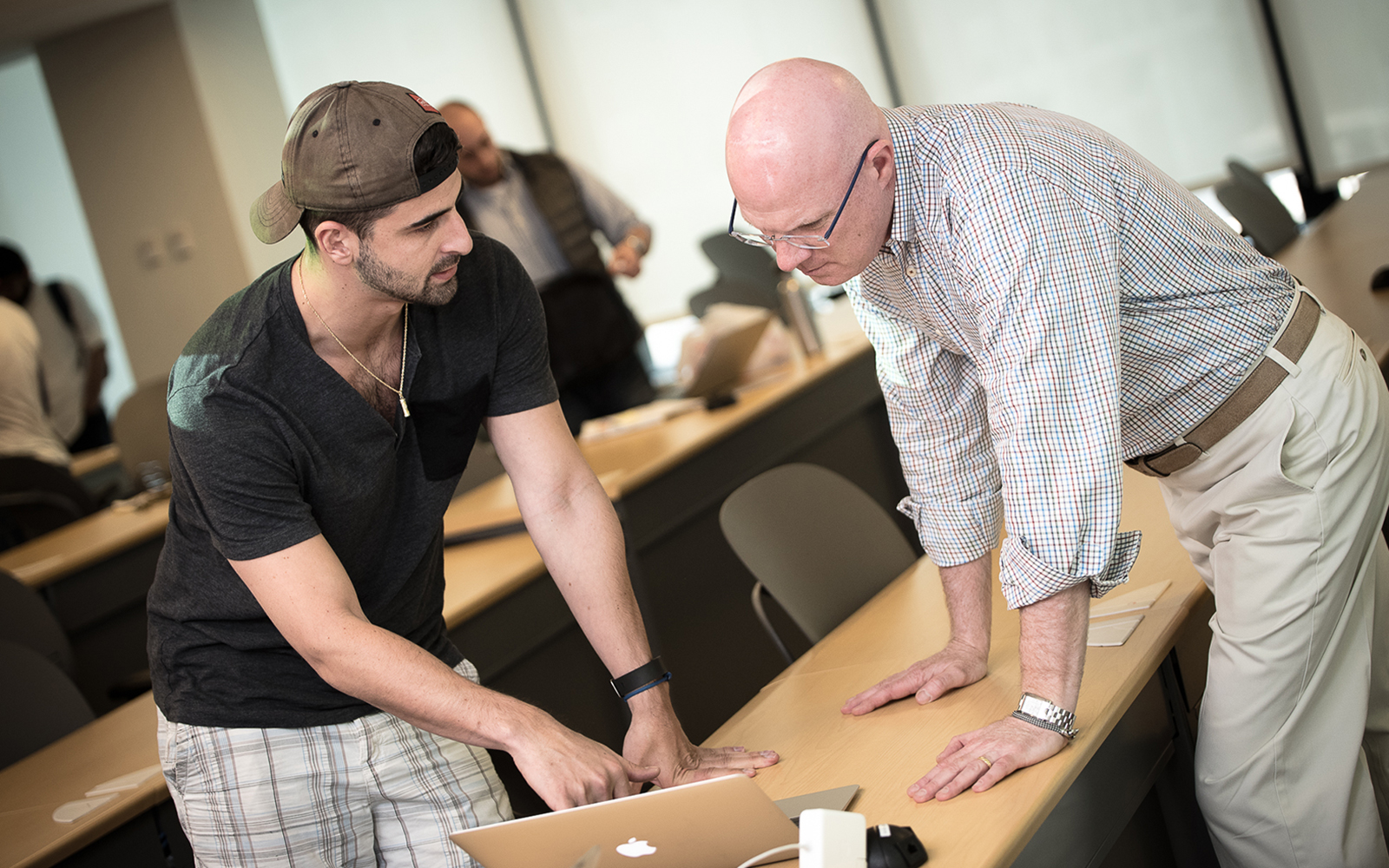
United Technologies Sustainability Expert Shares Knowledge, Ideas with MBA Cohort
If there’s one take-away that John Mandyck, chief sustainability officer at United Technologies Corp., hopes that he has imparted to UConn’s full-time MBA students it is a sense of optimism.
“We face big problems with the future of our planet, including population explosion, the migration to city life and strain on our natural resources,” he said. “But I hope I left the students with a sense of optimism. We can achieve our environmental goals using new technology, best practices and greater awareness of sustainability.”
Mandyck was a guest instructor for a course called “Sustainability in the Global Business Environment.” In addition to his work at UTC, he chairs the Corporate Advisory Board for the World Green Building Council and has authored a book called “Food Foolish,” which addresses the hidden connection between food waste, hunger and climate change.
“Nobody has all the answers,” Mandyck said. “I’m hoping to create a dialogue about the pressing issues of sustainability and perhaps, together, we will come up with new solutions.”
Mandyck said he was pleased to see such geographic diversity in the first-year MBA class, drawing students not only from the U.S., but also from Europe, Asia, South America.
“They brought all their experiences to our discussion, which led to a great, sophisticated dialogue,” he said.
MBA candidate Elizabeth Warui, a native of Kenya, said one of the biggest environmental concerns she has is the flooding in her native country, which has claimed many lives, displaced many more and caused contamination. She said Mandyck’s presentation was not only empowering but also practical.
“Everyone here is trying to change the world and make it a better place. We all see the big picture,” she said. “But he gave us both the view of the big problem and some of the little steps that we can take to start to solve it.”
She vividly recalls a picture of a large storm drain in Kenya that wasn’t working because it was clogged with plastic bottles and other debris.
“It made me think about the everyday habits we have and how they impact our environment,” she said. “I think about how much food I throw away and how wasteful that is, and now I’m trying to buy less. This class has appealed to my business interests, but it has impacted my personal behavior as well.”
Although he graduated a week prior, Jason Harris ’16 MBA audited the class because his he is passionate about sustainability. In fact, he is hoping to work in project or business development with a renewable energy producer.
“I don’t think an MBA program is complete without a comprehensive evaluation of the social, economic and environmental cost of doing business,” he said. “I’m glad this has been added as a core course for MBA students because it is such an important issue.”